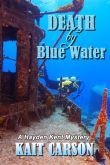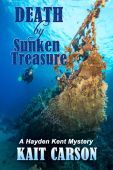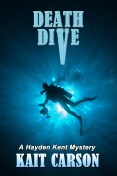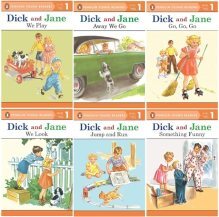And now, a Public Service Announcement by Kait Carson
 There won’t be too many photos with this one, but it’s a trending topic. Crime writers are happy to see the phrase “ripped from the headlines” in their reviews. If research is to be believed, fiction authors qualify for the same kudos. Not for their awards or best seller status. No, this is not a discussion of rarified air. Rather, there has been recent buzz about the effect reading fiction has on mental health and cognitive stability.
There won’t be too many photos with this one, but it’s a trending topic. Crime writers are happy to see the phrase “ripped from the headlines” in their reviews. If research is to be believed, fiction authors qualify for the same kudos. Not for their awards or best seller status. No, this is not a discussion of rarified air. Rather, there has been recent buzz about the effect reading fiction has on mental health and cognitive stability.
As for the ripped from the headlines part, this is a presidential election year. Both of the leading candidates are…how to say this…experienced…senior…oh, heck, let’s be blunt–have a lot of miles on them. Phrases like competency, the contents of various cognition tests, and stories about dementia, the good, the bad, and the ugly fill news feeds. This is not a political post. Maine has the distinction of having the oldest population of the fifty states. In 2020, forty-five percent of us were over the age of sixty-five. It’s fair to say if there’s a way to stave off the less positive side of our collective ‘experience’, we’re interested.
 There’s not much we can do about our age other than celebrate and be grateful for it. As the poster reads: It is what it is, it becomes what you make it. Turns out, though, there is at least one easy thing you can do to help keep your mind sharp, and that’s where fiction authors need to take a bow. A March 6, 2020, article in the Harvard Business Review proposed that reading fiction provides greater benefits to the reader than non-fiction. Non-fiction is great for gathering information, but readers of fiction demonstrated greater empathy, social acuity, and ability to understand motivation. All necessary characteristics for socially involved people. And social involvement has long been touted as a key to maintaining good cognitive health.
There’s not much we can do about our age other than celebrate and be grateful for it. As the poster reads: It is what it is, it becomes what you make it. Turns out, though, there is at least one easy thing you can do to help keep your mind sharp, and that’s where fiction authors need to take a bow. A March 6, 2020, article in the Harvard Business Review proposed that reading fiction provides greater benefits to the reader than non-fiction. Non-fiction is great for gathering information, but readers of fiction demonstrated greater empathy, social acuity, and ability to understand motivation. All necessary characteristics for socially involved people. And social involvement has long been touted as a key to maintaining good cognitive health.
 According to a July 6, 2022, New York Times article reading can be an indicator of cognitive health. The article notes that a switch in preferences from fiction to non-fiction can be an early indication of cognitive decline. Fiction requires the reader to have active engagement with the story and the ability to follow characters and storyline from page one to the end. Non-fiction makes fewer demands on reader involvement. Inc. expounded on the Times story in their May 1, 2023 article. They took the benefits of fiction reading one step further by proposing that reading fiction helped prevent memory loss and cited to the benefits of reading crime fiction to keep memory sharp.
According to a July 6, 2022, New York Times article reading can be an indicator of cognitive health. The article notes that a switch in preferences from fiction to non-fiction can be an early indication of cognitive decline. Fiction requires the reader to have active engagement with the story and the ability to follow characters and storyline from page one to the end. Non-fiction makes fewer demands on reader involvement. Inc. expounded on the Times story in their May 1, 2023 article. They took the benefits of fiction reading one step further by proposing that reading fiction helped prevent memory loss and cited to the benefits of reading crime fiction to keep memory sharp.
 What does all this mean in real life? There is no magic bullet, and memory loss has many causes. If reading, especially reading crime fiction, is shown to strengthen and/or maintain cognitive function, then who are we to argue. Settle in with a good book, follow the clues, find the villain, then thank the author by leaving a review. Your first grade reading teacher was right. Reading is a skill that will enrich your life. It’s only now becoming apparent how very valuable that skill is over a lifetime.
What does all this mean in real life? There is no magic bullet, and memory loss has many causes. If reading, especially reading crime fiction, is shown to strengthen and/or maintain cognitive function, then who are we to argue. Settle in with a good book, follow the clues, find the villain, then thank the author by leaving a review. Your first grade reading teacher was right. Reading is a skill that will enrich your life. It’s only now becoming apparent how very valuable that skill is over a lifetime.
Happy reading.
Lea Wait's Blog
- Lea Wait's profile
- 506 followers



